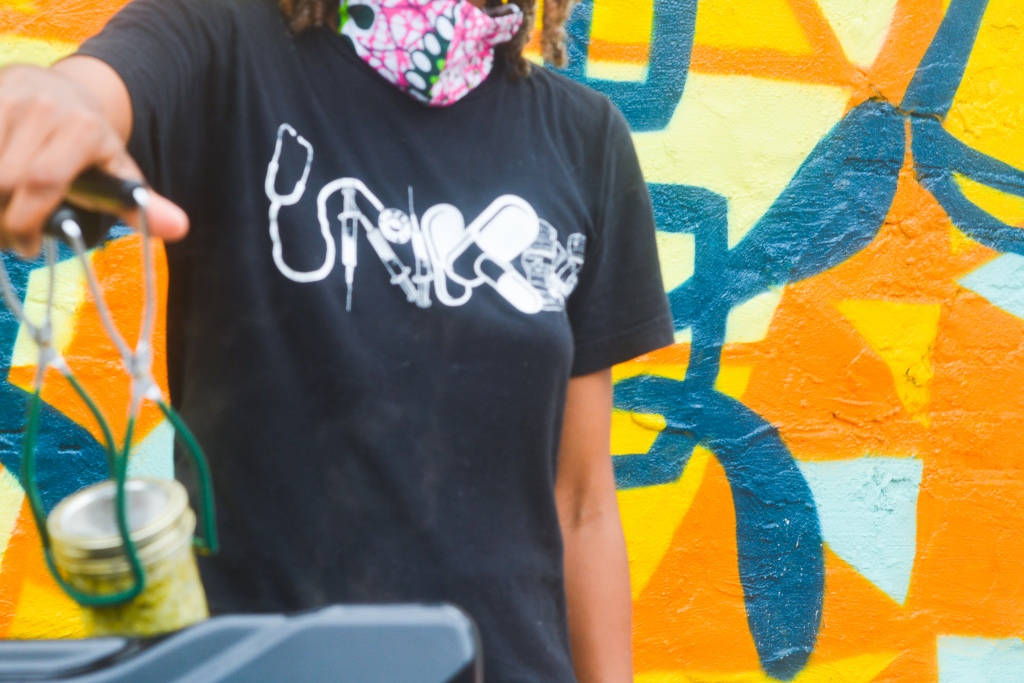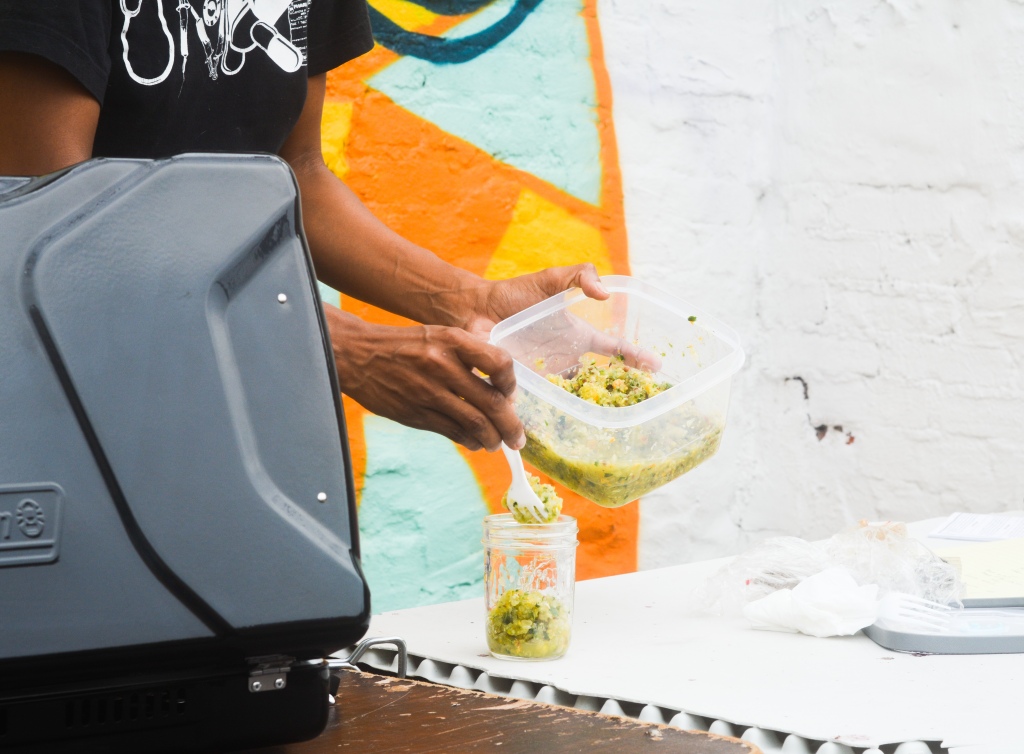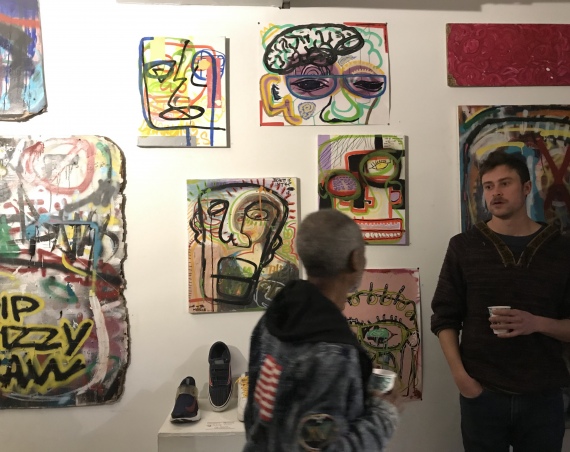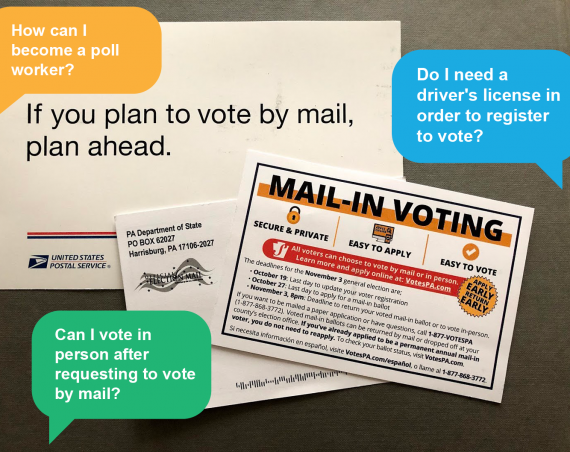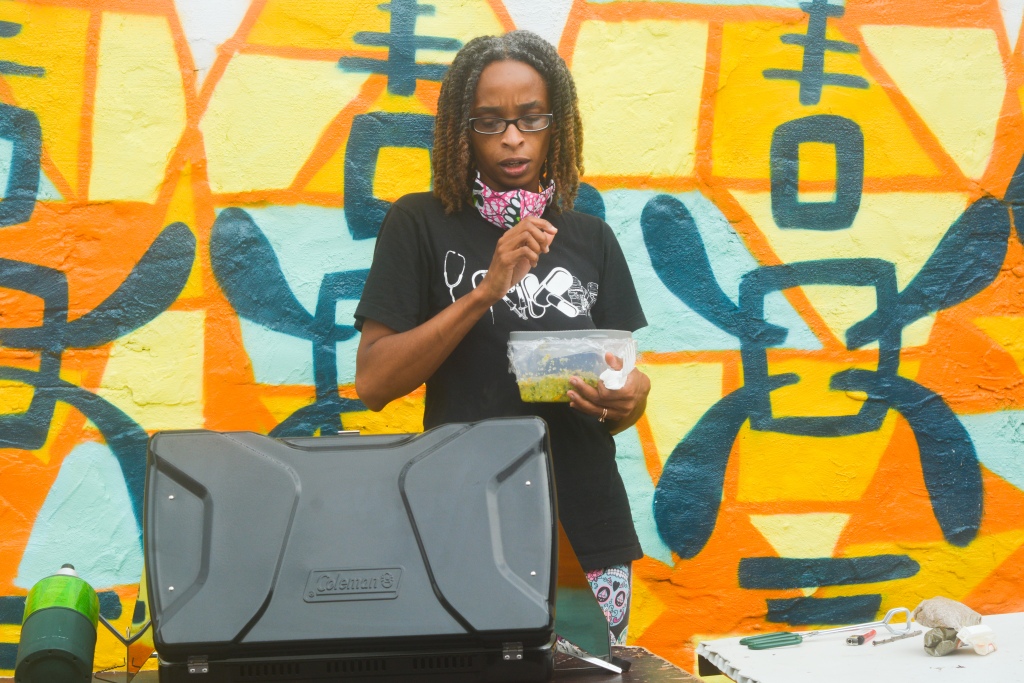
An array of mutual aid organizations, community gardens and grocery programs in Germantown have completed one goal this summer: To supply fresh produce to neighbors in need. As the growing season comes to an end, neighbors and organizations are also thinking about making produce accessible once winter sets in.
Two months ago, members of Germantown Residents for Economic Alternatives Together, or GREAT, came together with the same question. How could they help people who have been accessing free or affordable fresh produce obtain fresh fruit and vegetables once local farms shut down for the year? They were especially concerned that grocery store prices could be out or reach.
Out of this discussion, a possible solution surfaced. Food preservation education.

Todsza English demonstrated canning relish at Wednesday’s food preservation workshop. | Nichole Currie for Gtown Info Hub 
Todzsa English placed a pre-made relish mixture in a Mason jar before canning | Nichole Currie for Gtown Info Hub
On Wednesday, Sept. 2, GREAT held a food preservation workshop at the Germantown Supply Hub, a mutual aid program that sets up at the People’s Lot twice a week, an outdoor space near the corner of Church Lane and Germantown Avenue.
Wednesday’s workshop covered ways to keep produce and meats from spoiling. Long-term food preservation options discussed included freezing, dehydrating, fermenting, pasteurization, and canning. Todzsa English, a member of GREAT, led the workshop. She runs Live Decent, a non-profit that teaches self-sufficiency. She said food preservation is an essential life skill.
“If you were to buy things when they’re just really cheap, or if you got things for free and you preserve them until the next time of abundance, you wouldn’t have to worry about food insecurity or, you know, eating toxic waste every day because quite frankly, that’s all you can afford.”
English’s tutorial demonstrated the process of canning items like relish, pickles, jam, or tomato sauce using a boiling pot of water, brine, and glass jars. Howard Bailey, another member of GREAT told participants that the food preservation workshop will not be a one-time lesson, but hopefully a movement.
“We’re actually talking about a lifestyle change,” Bailey said. “We’re trying to change our community from being just consumers to being producers. Once you have the skill, you can pass this on to others.”
English stressed that food preservation was an opportunity for families to save money. She said locally grown produce is cheaper during the summer months and gave an example of the price of strawberries. “In February, you’re going to pay $6 for a pint. But in June, I paid $1 for a pint. So I got 20 pints, preserved it all, and now in February, I still have dollar pint strawberries.”
English plans to provide food preservation workshops every Wednesday at the Supply Hub, and in the future allow neighbors to bring food for her to can or preserve by other methods.
“I just believe people would be a lot happier and a lot more capable of caring for themselves and their families if they just had the wherewithal and the encouragement to do so,” English said.
Since the pandemic, there has been an uptick in canning. But the Washington Post reported canners are finding it challenging to find glass jars and lids in-store and online. Calli Blau, a member of GREAT, said the shortage has created, ‘bumps in the road.’ “We bought the canning supplies, and then found out that Ball jars are sold out throughout the country. How can we teach people to can if there are no cans to buy?”
Even with the shortages, Blau is excited about GREAT’s efforts. She said while neighbors are learning to preserve food, there is room for connection and community engagement around food and self-sufficiency.
“I think that also, something that we’re always trying to consider, ways for the community to connect,” Blau said. “Preserving food is important, but so is a piece where like everybody gets together and that no matter what happens with food insecurity, we will have each other to help get through.”
GREAT is in the preliminary stages of their food preservation efforts. English will continue her workshops Wednesday during the Germantown Supply Hub hours, 2 to 4 pm, located at the People Lot, 36 Church Ln.

The Germantown Info Hub is one of over 20 news organizations producing Broke in Philly, a collaborative reporting project on solutions to poverty and the city’s push towards economic justice. Follow us at @BrokeInPhilly.

